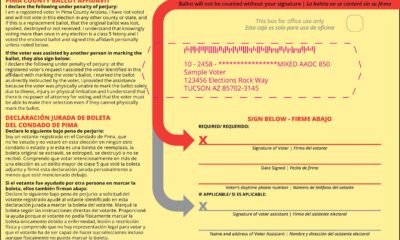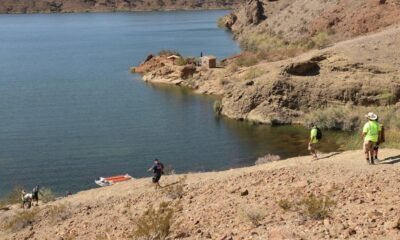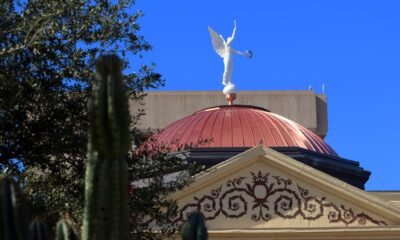election 2014
GOP Lawmaker Pursues Dual Paths to Close Voting Centers

Republican lawmakers have advanced a bill on January 22 that seeks to ban voting centers in Arizona. This initiative faces significant hurdles, particularly as Governor Katie Hobbs is unlikely to endorse any legislation that moves in this direction.
The House Federalism, Military Affairs and Elections Committee has passed both HB2017 and HCR2002; the two measures are identical with the key difference being that the concurrent resolution will bypass the governor’s approval to become law.
If successful in the Legislature, the resolution would be placed on the ballot during the 2026 general election for voter consideration. “I also did it in the form of an HCR so it can go to the people and the people can choose to vote for this on the ballot,” explained Rep. Rachel Keshel, R-Tucson, who sponsors the bills.
The proposed legislation mandates that election precincts accommodate no more than 1,000 registered voters, effectively prohibiting voting centers statewide. Each measure secured committee approval along party lines. Keshel’s previous attempt at similar legislation last year failed in the Senate, partly due to opposition from former Sen. Ken Bennett and Democratic lawmakers.
Concerns regarding the practical implications of this measure have arisen. Jen Marson, executive director of the Arizona Association of Counties, noted that the reliance on precincts could create logistical challenges for election administrators. “The reason that vote centers became popular is because we didn’t have enough places to be polling places in a traditional sense,” she emphasized.
Voting centers, which allow voters to cast ballots at any eligible location rather than a designated precinct, have been utilized increasingly since the 2020 elections. While most counties in Arizona incorporate some form of voting center, only Apache, Mohave, and Pinal counties exclusively use precint-based voting.
Maricopa County Recorder Justin Heap voiced his support for the proposed precinct model but recognized the potential for increased voter disenfranchisement due to long lines and technical difficulties associated with the voting center model. “It certainly is easier to use the voting center model on the elections officials, who have to staff these offices and find poll workers,” he said.
The proposed amendment could require Maricopa County, where over two million ballots were cast in the 2024 general election, to establish roughly 2,000 polling places. Heap highlighted challenges with the proposed limit of 1,000 voters per precinct, suggesting an increase to 1,500 to alleviate some staffing burdens.
Republicans also view the early voting period as crucial, but Keshel’s plan could repeal existing laws that permit county recorders to manage on-site early voting locations. Although voters would retain options for mailing early ballots or using dropboxes, civil rights groups, such as the American Civil Liberties Union of Arizona, raise concerns about access.
“Arizonans want the ability to return their signed, sealed and voted early ballot, whether that’s by mail or in person at a voting location,” stated Katelynn Contreras, a policy strategist for the organization.
While the bill permits polling locations to act as early voting sites, Marson cautioned that facilities like schools or churches may not be prepared for extended hours needed for early voting periods and Election Day.
Rep. Alexander Kolodin, R-Scottsdale, sees the legislation as a means to enhance voter access, particularly for rural individuals who face logistical challenges in reaching voting locations. He criticized voting centers as a form of unconstitutional poll tax, asserting that they may disproportionately disadvantage participants who cannot easily travel to polling sites.

















